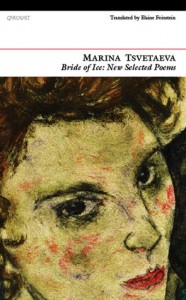Poetry in Translation (CCCLXXXII): Marina TSVETAEVA (1892-1941) RUSSIA: “A kiss on the forehead”, “Sărut pe frunte”
A kiss on the forehead
A kiss on the forehead erases misery.
I kiss your forehead.
A kiss on the eyes lifts sleeplessness.
I kiss your eyes.
A kiss on the lips is a drink of water.
I kiss your lips.
A kiss on the forehead erases memory.
(English version by Ilya Kaminsky and Jean Valentine)
* * * * * * *
Sărut pe frunte
Marina TSVETAEVA
(1892-1941)
Un sărut pe frunte – şterge mizeria.
Iţi sărut fruntea.
Un sărut pe ochi – şterge insomnia
Iţi sărut ochii.
Un sărut pe buze – e-un pahar cu apă.
Iţi sărut buzele.
Un sărut pe buze – iţi şterge memoria.
Rendered in Romanian by Constantin ROMAN,
© 2016 Copyright Constantin ROMAN, London
* * * * * * *
She married Sergei Efron in 1912, who later joined the White Army, and she separated from him during the Civil War. Tsvetaeva is famously known for her lesbian relationship with the fellow poet Sofia Parnok. In 1922 she emigrated with her family to Western Europe, settling finally in Paris in 1925. Where she and her family lived in poverty. As her husband, Sergei Efron worked for the Soviet secret police, Tsvetaeva was shunned by the Russian expatriate community of Paris. Yet, at these crossroads, during her dire years of privation and exile, she is sustained by fellow poets. She corresponded with Rainer Maria Rilke and Boris Pasternak, and she dedicated work to Anna Akhmatova.
In 1939 the poet and her family returned to the Soviet Union, where, predictably, Stalin executed Efron and sent the couple’s surviving daughter to a forced labour camp. After the German invasion of the USSR, Tsvetaeva was evacuated to Yelabuga with her son. She hanged herself on August 31, 1941.
Marina Tsvetarva counts as one of the most renowned 20th-century Russian poets. Critics and translators of her oeuvre often comment on the passion in her poems, their swift shifts and unusual syntax, as well as of the influence of Russian folk songs therein. She is the subject of several biographies and her collected memoirs “No Love Without Poetry” were edited and published posthumously by her daughter Ariadna Efron (1912–1975).




No Comments so far ↓
Like gas stations in rural Texas after 10 pm, comments are closed.